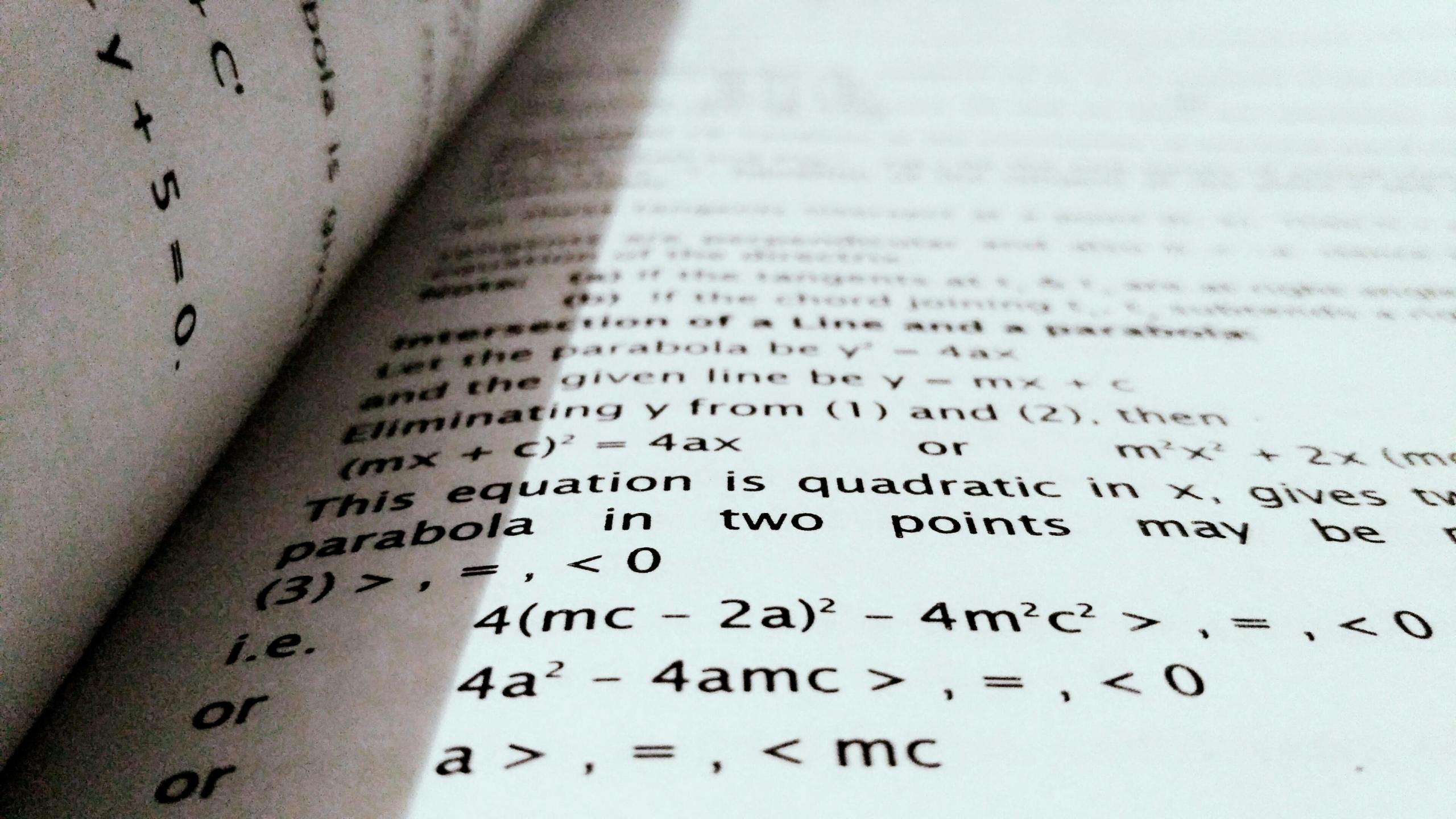Few subjects present students with a skillset as diverse as math. Studying for a math degree at university can lead to a world of opportunities for students to develop critical thinking and problem-solving skills throughout their years of study.
If you are a student who is considering investing your time and effort into pursuing a maths degree, the UK is one of the best destinations for you. The UK has a number of reputable universities that offer maths programs that help shape the minds of aspiring mathematicians just like yourself, equipping them with the skills to succeed in a wide variety of fields.
In this article, our aim is to leave you with the information you need before studying the subject and highlight some important considerations that you will want to keep in mind in your pursuit of the best education.

Studying Mathematics at UK Universities
There is a reason that mathematics is a subject that is by no means confined to pure mathematics courses. If you browse undergraduate and master's courses across a number of academic schools, you will likely find a number of maths modules being taught.
Just about any engineering, business or science course that you can think of will contain a number of components that require mathematics. Furthermore, many universities offer online maths tuition to help students balance their studies in a digital age.

This speaks volumes about the subject's role in today’s data-centric society, and the courses on offer across the UK reflect that, with more maths-oriented degrees popping up year after year.
Rest assured that studying for a degree in maths will leave you with skills that are increasingly sought after in the contemporary jobs market, leading to a broad range of opportunities for employment.
Get ready to study for a maths degree right here in the UK, we'll now take a look at the reputation for success that our institutions have on an international scale for the programs they provide.
The UK's Reputation for Excellence in Mathematics
The United Kingdom has always had a reputation for the mathematics education it provides at third level. The universities here offer top-notch programs and support the growth of mathematicians.
The universities strive to deliver a stimulating learning environment that prepares students to grasp theoretical topics in great detail but also extends the learning experience to understand how they are applied in practice.
According to the Times Higher Education World University Rankings 2024, six of the world's top 50 maths courses are taught in universities in the UK.
Throughout your time on a month-long course, you can expect to delve into many real-world applications of the topics you cover in class.
For example, if you are studying statistics, you can expect to apply what you have learned to break down real-world research projects or surface trends from data sets. This hands-on approach not only teaches students about the subject's practical applications but also gears them for the working world from an early stage.
Mathematical sciences are one of the least popular subject groups at universities in the UK, while business, medicine, biological sciences, and social studies remain some of the most popular.

Selecting the Right University Maths Course
📚Course Content and specialisations
🎓 University reputation and ranking
💸 Entry requirements and costs
If you really want to find a degree that will facilitate growth in areas you are interested in and set you up for success, then you are going to want to sit down and assess your interests and career goals.
This is particularly important at times when the academic calendar is particularly challenging. You’ll need to have a strong ‘why’ if you are going to persevere and excel in the subject.
The podcast above discusses a number of considerations when it comes to entering a maths degree in the UK. IT will also give you an idea about the admissions processes and some of the considerations you should keep in mind to land yourself in a suitable course.
It’s always a helpful exercise to envision yourself as a graduated student; think about what skills you would like to have acquired at this stage of your education journey, and it will make finding the right university course that bit easier.
Understanding your interests and what skills you would like to develop over your years of study will help you select courses that best facilitate this transformation.
Look for programs that strike a balance between knowledge and practical applications while also providing opportunities for specialisation in your areas of interest.
You will find that every maths degree will encompass its own unique mix of modules from applied mathematics and statistics to calculus and probability. The subjects that a course offers, along with the ranking of the respective institution, are some of the major considerations to keep in mind.

While rankings shouldn't be the deciding factor in your decision-making process, they can offer some insights into the quality of education, the expertise of faculty members as well as the employment rate of graduated students.
For many students, the most stressful part is applying to university, studying for your A Levels, and awaiting the results to see if you got enough UCAS points to get onto your desired course.
Undergraduate and Postgraduate Maths Programs
If you are interested in the avenues that are available to you when it comes to studying mathematics, then you have likely already looked at undergraduate and postgraduate courses.
If you are coming straight from the secondary school system, then the main gateway to studying math at university is through an undergraduate degree.
To get onto a degree course in the UK, you'll have to do so through UCAS. UK students can apply to up to 5 different courses. These 5 courses don't need to be at 5 different universities, and you can apply to different courses at the same university.
| Program Type | Description | Example Universities | Undergradute/Postgraduate |
|---|---|---|---|
| Pure Mathematics | Focuses on theoretical aspects of mathematics such as algebra, analysis, and number theory. | University of Cambridge, Oxford | UG, PG |
| Applied Mathematics | Involves practical application of mathematical techniques to solve real-world problems. | Imperial College London, Warwick | UG, PG |
| Statistics | Concentrates on data collection, analysis, interpretation, and presentation. | London School of Economics, Bath | UG, PG |
| Financial Mathematics | Combines mathematics with finance and economics to analyze financial markets. | University of Manchester, King's College London | UG, PG |
| Computational Mathematics | Focuses on algorithms, numerical methods, and the use of computers in solving mathematical problems. | University of Edinburgh, Bristol | UG, PG |
| Mathematical Physics | Combines principles of physics and mathematics to study the physical world. | University of St Andrews, Glasgow | UG, PG |
| Actuarial Science | Applies mathematical and statistical methods to assess risk in insurance and finance. | University of Kent, Heriot-Watt | UG, PG |
| Data Science | Involves statistical analysis and computational skills to interpret complex data. | University of Exeter, UCL | UG, PG |
| Operational Research | Applies advanced analytical methods to help make better decisions. | University of Southampton, Lancaster | UG, PG |
| Mathematical Biology | Uses mathematical techniques to model biological processes and systems. | University of Sussex, Dundee | UG, PG |
| Mathematics and Philosophy | Explores the philosophical implications of mathematical theories and logic. | University of Warwick, York | UG |
| Mathematics with Education | Prepares students to teach mathematics at various educational levels. | University of Birmingham, Durham | UG |
| Industrial Mathematics | Applies mathematical methods to industrial and engineering problems. | University of Leeds, Loughborough | UG, PG |
| Mathematics with Computer Science | Integrates mathematics with computer science principles, algorithms, and programming. | University of Oxford, UCL | UG, PG |
As for requirements, most university courses will require at least an A Level in maths. Of course, some exceptions will be made if you're an international student with different qualifications or a mature student. In these cases, you'll have to check with the university.
In addition to an A Level in maths, a lot of universities like to see subjects related to maths like statistics, physics, or further maths. Of course, you won't be completely ruled out if you've studied a foreign language or any of the social sciences, but it'll increase your chances if you look like you're interested in specialising in mathematics and have exam results to back that up.
By studying for an undergraduate maths degree, you’ll likely cover many of the topics that you were introduced to throughout your GCSE and A-level education, but only in much greater detail.
On the other hand, a postgraduate degree offers a finer scope that allows students to delve into the subject at a deeper level. A postgraduate maths degree is suited to those looking to deepen their understanding, engage in research, or pursue highly specialised careers.
Postgraduate maths degrees can also be a great option for students who have completed an undergraduate degree in an unrelated field and wish to transition to a math-related field.
Where Can You Study for a Maths Degree in the UK?
So, now that you have a better idea of why you should study mathematics, what to keep in mind when you are searching for the right course, as well as the levels that you can study the subject at, you’re probably wondering where you can study maths at university.
Thankfully, there are plenty of great degrees on offer across the UK that will set you up for a successful career in whatever field you intend to pursue thereafter.
Undergraduate Maths Degree Programmes
| University | Program Name | Entry Requirements | Annual Fees (International) | Course Duration |
|---|---|---|---|---|
| University of Cambridge | BA (Hons) Mathematics | A*A*A + STEP | £28,704 | 3 years |
| University of Oxford | Mathematics BA | A*A*A with A* in Mathematics | £29,500 | 3 years |
| Imperial College London | BSc Mathematics | A*A*A in Mathematics and Further Mathematics | £35,100 | 3 years |
| University of Warwick | BSc Mathematics | A*AA | £24,800 | 3 years |
| University of Edinburgh | BSc Mathematics | A*AA - AAB | £26,500 | 4 years |
| University College London (UCL) | BSc Mathematics | A*A*A | £34,400 | 3 years |
| London School of Economics (LSE) | BSc Mathematics | IB 38 with 7 in Mathematics | £27,192 | 3 years |
| University of Manchester | BSc Mathematics | A*AA | £25,000 | 3 years |
| King's College London | BSc Mathematics | A*AA | £27,750 | 3 years |
| University of Bristol | BSc Mathematics | A*AA or AAB | £24,500 | 3 years |
| University of Bath | BSc (Hons) Mathematics | AAA or A*AB | £28,800 | 3 years |
| Lancaster University | BSc (Hons) Mathematics | AAB | £24,070 | 3 years |
| Queen Mary, University of London | BSc (Hons) Mathematics | AAB | £20,750 | 3 years |
| University of Reading | BSc Mathematics | BBB | £20,830 | 3 years |
| Royal Holloway, University of London | BSc Mathematics | ABB | £21,800 | 3 years |
| University of Salford | BSc Mathematics | BBC | £15,300 | 3 years |
| University of Sheffield | BSc Mathematics | AAB | £24,600 | 3 years |
| Sheffield Hallam University | BSc Mathematics | BBC | £14,460 | 3 years |
| University of Southampton | BSc Mathematics | A*AA or AAA | £23,000 | 3 years |
| University of Surrey | BSc Mathematics | ABB | £19,300 | 3 years |
| University of Sussex | BSc Mathematics | AAB | £18,975 | 3 years |
| University of the West of England | BSc Mathematics | BCC | £13,500 | 3 years |
| University of Wolverhampton | BSc Mathematics | CCC | £13,950 | 3 years |
| University of York | BSc Mathematics | AAA | £24,600 | 3 years |
| University of Aberdeen | BSc Mathematics | BBB | £19,800 | 4 years |
| Heriot-Watt University | BSc Mathematics | AAB | £18,080 | 4 years |
| University of Dundee | BSc Mathematics | BBB | £19,500 | 4 years |
| University of Glasgow | BSc Mathematics | A*AA | £23,520 | 4 years |
| University of St Andrews | BSc Mathematics | AAB | £25,100 | 4 years |
| University of Stirling | BSc Mathematics | BBB | £15,900 | 4 years |
| University of Strathclyde | BSc Mathematics | AAB | £18,650 | 4 years |
| University of West of Scotland (UWS) | BSc Mathematics | CCC | £13,000 | 4 years |
| Aberystwyth University | BSc Mathematics | BBC | £15,600 | 3 years |
| Cardiff University | BSc Mathematics | AAB | £20,450 | 3 years |
| Swansea University | BSc Mathematics | ABB | £18,500 | 3 years |
| Queen's University Belfast | BSc Mathematics | AAB | £20,800 | 3 years |
It’s hard to ignore a name as big as the University of Oxford when you are talking about maths courses. The institution offers a range of options when it comes to undergraduate degrees offering courses in mathematics, mathematics & statistics, mathematics & philosophy, and mathematics & computer science.
A great thing about studying at Oxford is that you don’t need to have everything mapped out right away. The first year of many of these courses is largely the same, allowing you to choose your preferred path down the line. The university was also ranked among the best university in the UK for maths.
If you're looking for some insight into what a university maths degree entails here in the UK, then you can hear first-hand from an accomplished Cambridge maths graduate who graduated top of the class.
Another big name is the University of St Andrews, where students can study a broad range of mathematics and statistics or specialise in pure or applied mathematics. If you meet the minimum entry requirements, which are competitive, to say the least, you will find both undergraduate and master's degree options in mathematics.
If you are considering going after a postgraduate degree, then you’ll definitely appreciate the opportunity to combine your undergraduate and postgraduate studies into a single five-year program.
Another option that you might want to consider is the mathematics program offered at Imperial College London. Here, you’ll actually be able to choose from over 50 specialised modules, many of which are linked to cutting-edge research and led by pre-eminent experts in their fields.
This is particularly attractive for those who might already know what area they would like to work in and are seeking some choice in how they go about their learning in order to get there. It also means that you can spend more time learning topics that you are genuinely interested in, which may even improve your grade and your overall learning experience!
There are plenty of options on offer when it comes to studying for a maths degree here in the UK, but if you have your sights set high, then these are some options you'll want to consider.
Prepare Yourself for a Maths Degree with Superprof

Without question, the jump from secondary school mathematics to the topics that you will cover throughout a university degree is substantial. If you are looking to prepare for what lies ahead, then you can certainly get a lot of value from a private tutor.
If you've exhausted your search online for maths tutor near me then you can head over to Superprof and filter your search according to your own criteria. Superprof has become a favourite option for students looking to pair up with experienced maths tutors. The platform offers plenty of flexibility to students, allowing them to approach their learning in any way they see fit.
The number of Superprof Maths tutors that provide their services across the UK.
So if you need a hand preparing your university application, some assistance with college maths topics or even some general guidance when it comes to careers to pursue once you've graduated, you can rest assured that you'll have little difficulty finding a suitable mentor on the platform, including a maths tutor in Plymouth.
For those on a budget, group tutorials are a great way to enjoy smaller class sizes and tailored lessons. Of course, the lessons won't be tailored to just you, but they are usually cheaper per student per hour than the other types of tutorials, as all the students are sharing the cost of the tutor's time.
Don't forget that many of the tutors on Superprof offer the first hour for free so you can try a few different tutors out before you decide on which one is right for you. You should also use this time to discuss your learning objectives, your budget, and your preferred learning styles. Thus, you'll be sure that your tutor knows what they need to do and how they need to do it.
Getting started is really as simple as heading over to the homepage and searching for a maths tutor that offers their services in your area or online!
Summarise with AI:















